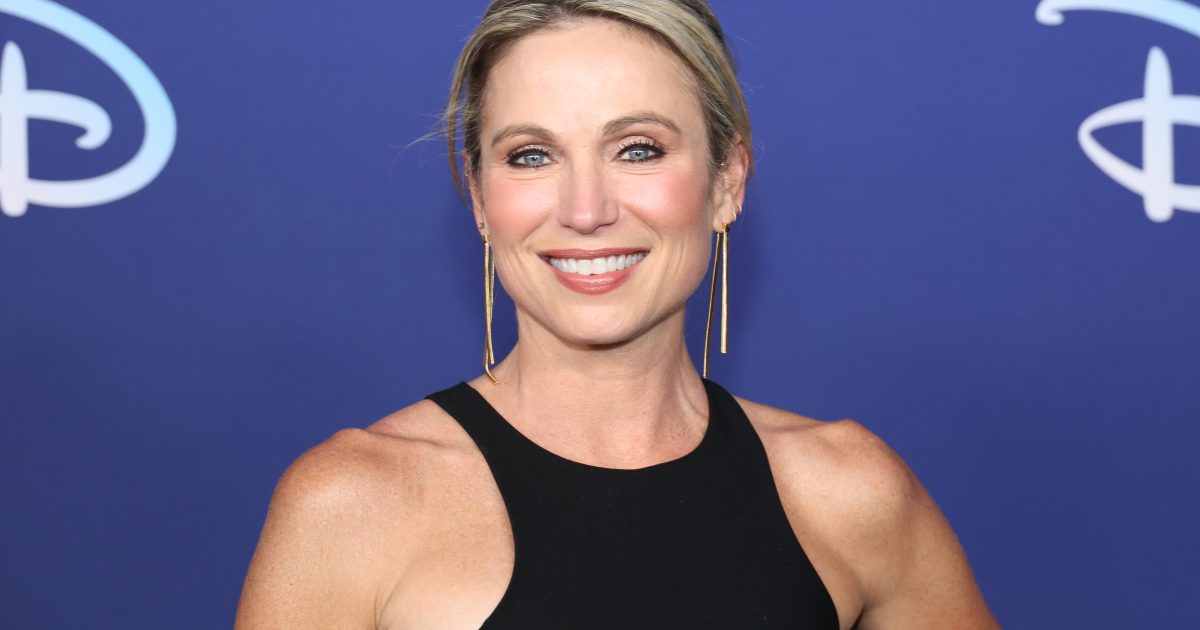Advocating for Women's Health
- ‘Good Morning America’ co-host Amy Robach has been a leading voice in the breast cancer community ever since she was diagnosed herself in 2013.
- Fellow GMA anchor Robin Roberts, who is a survivor herself, is the person who encouraged her to get a mammogram, and she did it on-air as part of a GMA breast cancer awareness campaign.
- Screening for breast cancer is typically done via mammogram, which looks for lumps in the breast tissue and signs of cancer. And while mammograms aren't perfect, they are still a great way to begin annual screening.
GMA ‘s Robin Roberts, who is a survivor herself, is the person who encouraged her to get a mammogram, and she did it on-air as part of a GMA breast cancer awareness campaign.
Read More
View this post on Instagram
“I have always believed in the power of one voice, and if you tell your story, you don’t even know the amount of people you impactthe ripple effect you have,” the journalist said of the bigger picture with advocacy.
Amy also recently posted a photo of her and her “Breasties” from the GMA studio, highlighting the importance of a better healthcare system for all women.
Related: Check Out The Brave History Of Cancer Advocacy From Breast Cancer Warrior Katie Couric, 65
“9 years ago on this first Monday of Breast Cancer Awareness month a mammogram saved my life… and now, nearly a decade later we continue to spread the message of early detection and talk about the incredible research and resources available… but we need to continue to insist on access to the best healthcare for everyone!”
View this post on Instagram
“From stage zero to stage four, strides have been made,” she continued, “but more needs to be done and it begins with awareness and education… but it will only end with funding for a cure… so that no woman has to fear her breast cancer outcome.”
Amy’s Experience with Breast Cancer
If you’ve been recently diagnosed, anger is a very natural response upon receiving the difficult news. But from that anger, something pretty amazing can come.
That's the experience Amy Robach had when she took on breast cancer. Amy sat down with SurvivorNet for an earlier interview to discuss a few of the trials and tribulations you go through as you take on cancer.
Related: Fear, Anger, Anxiety You're Entitled To Your Emotions
As a seasoned journalist who has been on the ground at major events and disasters, Amy always considered herself a compassionate person. However, after facing cancer, Amy says she developed a new kind of compassion that wasn't possible before her experience with the disease.
TV Journalist Amy Robach Says Cancer Taught Her To Feel Other People's Pain
"Cancer is something that has changed my life forever, something that I will always live with," Amy expressed. "There's anger at first because you've lost security … and you've never had it to begin with, none of us actually have security, but you actually are grieving this loss of security because we all feel like there's tomorrow. We all feel like there's another day. When you get to something like this, you're angry that you lost that. That that's been taken away from you. From that anger, I think, grew compassion and empathy."
Amy considers that loss of security one of the gifts that cancer can bring. "You truly, truly can feel other people's pain in a way that you couldn't have before."
Understanding Breast Cancer
Breast cancer is a common cancer that has been the subject of much research. Many women develop breast cancer every year, but men can develop this cancer too though it is more rare, in part, due to the simple fact that they have less breast tissue.
When Should I Get a Mammogram?
Screening for breast cancer is typically done via mammogram, which looks for lumps in the breast tissue and signs of cancer. And while mammograms aren't perfect, they are still a great way to begin annual screening. The American Cancer Society (ACS) recommends women begin mammogram screening for breast cancer at age 45.
Even still, we know that a breast cancer diagnosis can come at any age. Some experts insist that screening should begin at 40, or even 35, especially if you have a family history of breast cancer.
“If you haven’t gone through menopause yet, I think it’s very important that you have a mammogram every year,” say Dr. Connie Lehman, a professor at Harvard Medical School and director of the breast imaging clinic at Mass General Hospital in Boston.
“We know that cancers grow more rapidly in our younger patients, and having that annual mammogram can be lifesaving,” she continued to SurvivorNet in a previous interview. “After menopause, it may be perfectly acceptable to reduce that frequency to every two years.”
Dr. Lehman stated that her main concern is the women who have skipped two, three, or four years in between mammograms, or those who have never had one.
“We all agree regular screening mammography saves lives.”
Contributing by SurvivorNet staff.
Learn more about SurvivorNet's rigorous medical review process.




